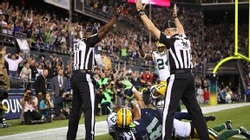State of the Church Joel Committee Report
Introduction
In the Spring of this year, the Administrative Council called the Joel Committee into being, asking us to study the future course of St. Andrew’s. The name of the Cmte. comes from Joel 2:28 (NRSV)
28 Then afterward
I will pour out my spirit on all flesh;
your sons and your daughters shall prophesy,
your old men shall dream dreams,
and your young men shall see visions.
The Council looked for people who were faithful Christians, who were open to new ideas, who could hold the interests of the church above personal agendas, and who could work well with others. Keith Brown, Sue Bullock, Larry Carella, Gina Collard, David Lewyn, Tom Patton, and Melanie Tita were selected.
Our Beginning
We began meeting and reading a book entitled Stepping In The Stream, by Beth Crissman and published by Plowpoint. Plowpoint is an organization founded by United Methodist ministers from our Annual Conference that seeks to assist local churches in developing fruitful ministry. Stepping In The Stream takes its name from the idea of stepping in the stream of God’s will. The book outlines a biblical approach by which we can seek and follow God’s will, not our own.
Plowpoint’s approach centers around the idea that churches, and most any organization, go through four stages on a never-ending cycle: forming, storming, norming, and performing. Forming is when a group discovers who they are and whose they are. Storming is when we begin to articulate our views, opinions, wishes, needs, and desires. Inevitably these thoughts will rub up against each other in conflict. Conflict is natural, and necessary to the growth of an individual and to a church. Conflict itself is neutral. How a group handles conflict makes the difference between whether stress is experienced as eustress (a positive force for growth) or distress (a negative force that tears down). Norming is the development of mission, vision, and core values. And performing is taking action steps and implementing strategies to live the vision.
History
As an early step in our process, the Joel cmte. researched the church’s history. We interviewed former staff and long-time members as well as looked at statistical reports and remembered our own stories. We found much in our 50 year heritage to celebrate.
From our very founding St. Andrew’s has remarkable stories of God’s work. Our collective belly button rests in the 1957 land purchase by the District Mission Society. In 1959 we worshipped for the first time as St. Andrew’s UMC on Easter Sunday. By the late 60’s we were 700 strong and sponsoring a church in India. The neighborhoods of Starmount and Montclaire were the Ballantyne of their day and St. Andrew’s served these new neighborhoods.
The early neighborhood was fluid. George Robinson remembers needing to bring in 100 new members a year just to break even with the number of members who were moving away. Several long-standing ministries started in the 1970’s including our annual trip to Camp Tekoa, and the Harvesters. During this time and into the 80’s the church was strong in family ministries, lay driven, and with a strong arts department. In the late 1990’s and early 2K, the FLC was built, blended and contemporary music began to be played in worship. By the time Dan arrived our preschool was thriving, and we began to include a changing neighborhood into our ministry and outreach.
Demographics
The Joel Cmte looked deeply into the neighborhood. We looked at how the 1969 membership of the church was tightly packed around the church, and how by 2011 the membership had become spread out throughout south Charlotte and parts of South Carolina. We looked at demographics at several different levels and how the composition of the neighborhood has changed. The demographics available to us show that our neighborhood, measured at various levels, and with various geographies, is projected to be fairly stable for the next 5 years with no large movement in cultural or socio-economic levels. Currently our neighbors tend to be 20% African American, 20% Latino, 58% Anglo, and 2% other.
Intangible Discoveries
We began to hear some stories more than others. We also began to detect some patterns from our history.
a) We have always been a family oriented church and many of the successful ministries we recount from our past serve people of all ages.
b) We have long valued quality music and arts as part of meaningful worship.
c) As we tell the stories of our history, a pastor’s name is almost always attached to the story. This aspect of our storytelling can tend to over-identify the responsibility for success and the blame for shortcomings onto the pastor, leaving the congregation’s role out of the story.
d) Using the language of Plowpoint’s cycle, we don’t tend to storm skillfully. Situations can get unnecessarily heated, and specific people can end up bearing blame instead of everyone accepting their own share of a particular conflict.
e) Fellowship has usually been highly valued.
f) The Joel Cmte.’s inquiry into demographics appears to have given old and unresolved conversations new life. Are we to be internally or externally focused? Are we to be a neighborhood church? If we focus on the natural network of people geographically close to us, are we forgetting the people who live further away? Are we to win new people to Christ with words or deeds? Who is our neighbor? Anxiety about being a potentially multi-cultural congregation has surfaced. Worries have been expressed about getting new members who don’t or can’t contribute to the budget. Worries have been expressed about having too many minority members.
Next Steps
The Joel Cmte. has rediscovered much of the strength of St. Andrew’s UMC. We have a proud 50-year history with much to celebrate and in which to take pride. Our study of Stepping Into the Stream, our prayers for the church and for our own guidance, our look at our history and the trends that have brought us to where we are lead us to a suggestion for next steps.
We will recommend to the Administrative Council two basic steps. Step one is that an open and large scale discussion take place so that some light, air, and understanding might come to the concerns and anxieties that have recently been expressed. Even though the Joel Cmte is still early in our work, our preliminary inquiries to basic questions such as “Who Is Our Neighbor” seems to have tapped into some chronic anxiety and questions that need to be digested before we can move forward with our work. But before this step can take place, we recommend the preliminary step to be taken that as many people as possible receive training in “Skills for Healthy Storming.” By learning some better skills in how to conflict well with each other, and take some of the electric charge out of the conversation, we think St. Andrew’s can come to a closer understanding of God’s will for our congregation, and be better equipped to step into the stream of God’s will.


 RSS Feed
RSS Feed